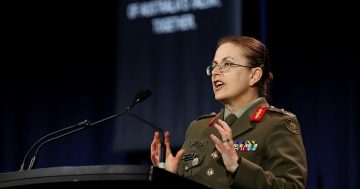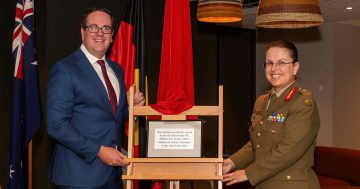
Initiatives introduced in 2023 have failed to arrest the ADF’s retention and recruitment goals. Photo: ADF.
The Federal Government has sought to address the Australian Defence Force’s ongoing personnel shortfalls by allocating an additional $600 million in incentives to boost recruitment and retention.
The new funding comes on top of a May 2023 pilot program which came from recommendations in the Labor Government’s Defence Strategic Review (DSR). That program saw $400 million allocated to establish a continuation bonus scheme with payments of up to $50,000 for experienced ADF members as an incentive for ongoing service of three additional years beyond their initial period of return of service obligation (ROSO).
It also allocated $2 million towards a review of Defence housing policy in recognition of the challenges a mobile workforce like the ADF has in being able to secure housing.
Other changes saw the appointment of a three-star senior officer as Chief of Defence Personnel to oversee recruitment, retention and personnel welfare initiatives, new branding, and a move to a new recruitment agency partner, Adecco Australia.
Although the ADF’s separation rate has reduced from 11 per cent to nine per cent in recent years, it is still too high. Similarly, recently launched recruitment initiatives have failed to generate sufficient new recruits to backfill the positions of those who have separated, and to grow the ADF to be able to operate new capabilities.
The new program aims to increase the average term of service from the current seven years to 12 years.
It comes just months after the Australian National Audit Office (ANAO) found that Defence had not been evaluating the effectiveness of its recruitment advertising campaigns to see how well they worked.
The latest announcement coincides with the launch of the 2024 Defence Workforce Plan which examines planning and development, including the growth and future needs of the integrated workforce as outlined in the National Defence Strategy (NDS) and Integrated Investment Program (IIP).
The government says, in an environment with constantly changing strategic circumstances, it is essential Defence has a workforce that is resourced, postured and structured to protect Australia and our national interests.
It says the Defence Workforce Plan addresses ADF recruitment and retention, as well as Defence’s organisational culture, wellbeing and support to ADF members and their families.
The plan will see an extension of the continuation bonus for eligible, permanent members at the end of their initial service obligation, and an expansion of that bonus to cover a second cohort of eligible, permanent members after a minimum of seven years of service, to encourage continuation of service and career progression to middle ranks in the Defence Force.
Other initiatives include an increase in the Operational Reserves by an additional 1000 personnel by 2030, and an undertaking to continue to improve wellbeing and mental health support and organisational culture.
Deputy Prime Minister and Defence Minister Richard Marles said the ADF’s personnel were its greatest capability.
“Which is why it is crucial that the Defence workforce has the people it needs to help protect Australia’s strategic interests,” he said.
“The 2024 Workforce Plan will help ensure Defence can recruit and retain the highly specialised and skilled workforce required to meet its capability needs.
“We are confident that we/it will make a difference,” he added. “When we look at what we’ve already done with the pilot program, it is more thousands of people who are continuing, who might not otherwise have done that.
“So having a continuation bonus beyond the initial service obligation really does make a difference in terms of encouraging people to stay.”
Minister for Veterans’ Affairs and Defence Personnel Matt Keogh echoed Mr Marles’ comments, saying the delivery of Australia’s defence is only achieved through dedicated ADF, APS and external workforce, supported by Defence families.
“The Defence Workforce Plan details a transformation and sets out how we will deliver the right number of people with the right skills, while continuing to shape a positive and effective work environment for our people,” he said.
“The plan focuses our effort to deliver lasting institutional change to improve Defence culture and the health, safety and wellbeing of our people and ADF families.”
Original Article published by Andrew McLaughlin on PS News.





















